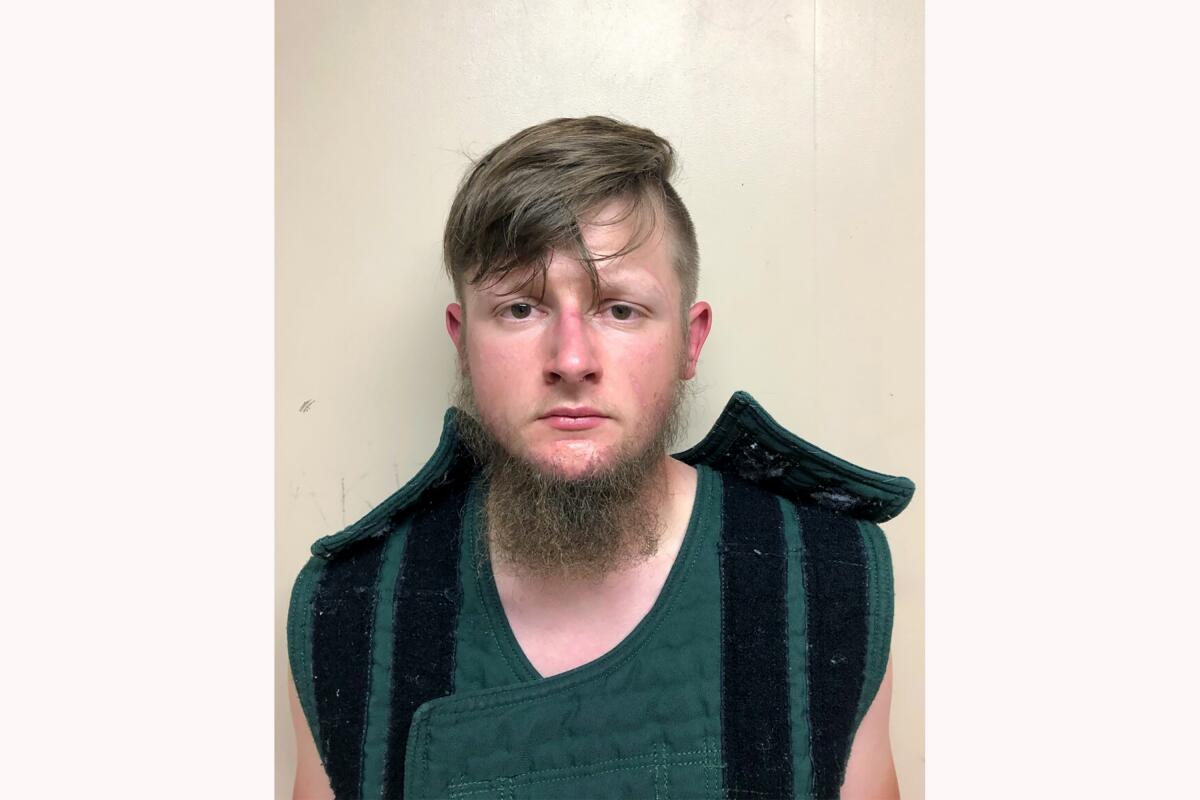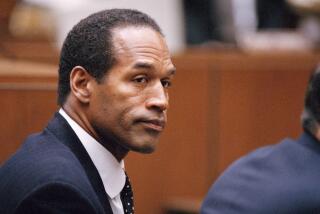Hate crime or not, Atlanta shooter was motivated by racism

- Share via
It should come as no surprise to anyone that Atlanta shooter Robert Aaron Long, who was convicted this week in the March shootings that killed six Asian American women, has not been found guilty of a hate crime.
After all, the Cherokee County sheriff’s office pretty much exonerated him on the night of his arrest. Sheriff Frank Reynolds told the media a few scant hours after the incident that Long “did not appear to be motivated by racism.”
Capt. Jay Baker went even further to sanitize Long’s motives, calling the mass shooting “a really bad day for him.”
Never mind that Baker’s Facebook account featured an image of a T-shirt with the message “covid 19 imported virus from Chy-na” at the time.
Never mind that a report from national Korean newspaper The Chosun Ilbo found that Long had said, “I’m going to kill all Asians” during the shootings.
Never mind that anti-Asian violence was widespread in America and that it would be virtually impossible to establish that any of us were untouched by the xenophobic mania stoked at the presidential podium.
Never mind all of that. Because a white sheriff’s deputy asked a white mass murderer if he was racially motivated, and he said no. Then a white district attorney told a white judge that race was not a factor. And that was all the racial justice Cherokee County authorities needed.
Racism is one of those crimes of which we in America seem content to allow the perpetrators to decide whether they are guilty. Like a conceited person staring into a mirror, America’s white-dominated institutions investigate themselves for flaws and find none.
In a 1922 Supreme Court ruling that made Japanese immigrants ineligible for U.S. citizenship, the court denied racism in its opinion: “Of course there is not implied — either in the legislation or in our interpretation of it — any suggestion of individual unworthiness or racial inferiority.”
In a similar ruling the following year that made immigrants from India ineligible for U.S. citizenship, the court wrote: “It is very far from our thought to suggest the slightest question of racial superiority of inferiority.”
In 1982, when Chinese American Vincent Chin was beaten to death by Ronald Ebens and his stepson Michael Nitz, white auto workers enraged by the Japanese auto industry’s success in America, Ebens concluded that his motivations were not racist. News organizations reporting on the incident largely agreed, despite eyewitness testimony that Ebens used racial slurs. So did the judge presiding over the case.
Chin’s killers never served jail time. And 15 years later, when Congress was weighing hate crimes legislation, a Michigan congressman still argued that race did not play a factor in Chin’s murder.
In March, after the Atlanta shootings, Congresswoman Judy Chu flew to Atlanta to meet with the community because she was disturbed by the claims that racism did not play a role in the shootings. The case reminded her of what happened after Chin’s death.
“This was not the act of a ‘bad day,’” said Chu, a California Democrat. “This was not a random thing. It was clear that this shooter had hatred in his heart and that he wanted to kill Asian women.”
In April, Chu and a group of bipartisan legislators introduced the No Hate Act, a bill that tries to streamline the reporting of hate crimes, establishes a hate crimes hotline and offers funding for trainings for law enforcement on how to investigate hate crimes.
“If we don’t have an accurate picture of the level of hate crimes in this country and where they are and what they are for, then how can we solve the problem of hate crimes?” Chu said.
Millions of hate crimes every year go unreported. And only a small percentage of those crimes reported are even documented by the authorities they are reported to. And an even smaller proportion of those reports that are taken make it to federal authorities tasked with investigating them.
Less than 15% of 15,000 law enforcement agencies nationwide have submitted reports of hate crimes to the FBI. Between 2005 and 2019, the Department of Justice investigated 1,878 suspected hate crimes cases and prosecuted just 17% of them.
In Louisiana, Kentucky and Texas, legislators have added police officers as a protected category under hate crimes laws — an utter mockery of the original intent of hate crimes legislation.
Hate crime laws are often narrowly defined and rarely prosecuted. They seem designed to exclude any considerations of structural and institutional racism, said Scott Kurashige, a professor of race and ethnic studies at Texas Christian University, who is researching anti-Asian racism.
“You basically have to be yelling a racial slur as you punch someone with an eyewitness,” Kurashige said.
Denial about racism is a major thread in U.S. history, he said, and it remains one today. And because the U.S. has repeatedly waged war or been at odds with Asian countries, anti-Asian racism specifically has become more tolerated and normalized, Kurashige said.
It’s why, when John McCain ran for president in 2000 and repeatedly referred to Vietnamese people by a racial slur on the campaign trail, he didn’t feel the need to apologize.
“I will hate them as long as I live,” said McCain, who was tortured as a prisoner during the Vietnam War.
When confronted about these statements by a reporter, McCain defended the use of the term, saying it was the politest term he could think of.
Hate crimes statistics do very little to describe the state of racism in America. But I think they do a pretty good job at capturing our society’s intense, undying reluctance to admit that racism plays a factor in all of our lives.
And while I’m grateful that Long faces hate crimes charges in his second murder trial in Fulton County, I won’t hold my breath waiting for the result.
Long’s murders were motivated by hate for Asian American women, whether our legal system affirms that or not.
More to Read
Sign up for Essential California
The most important California stories and recommendations in your inbox every morning.
You may occasionally receive promotional content from the Los Angeles Times.














